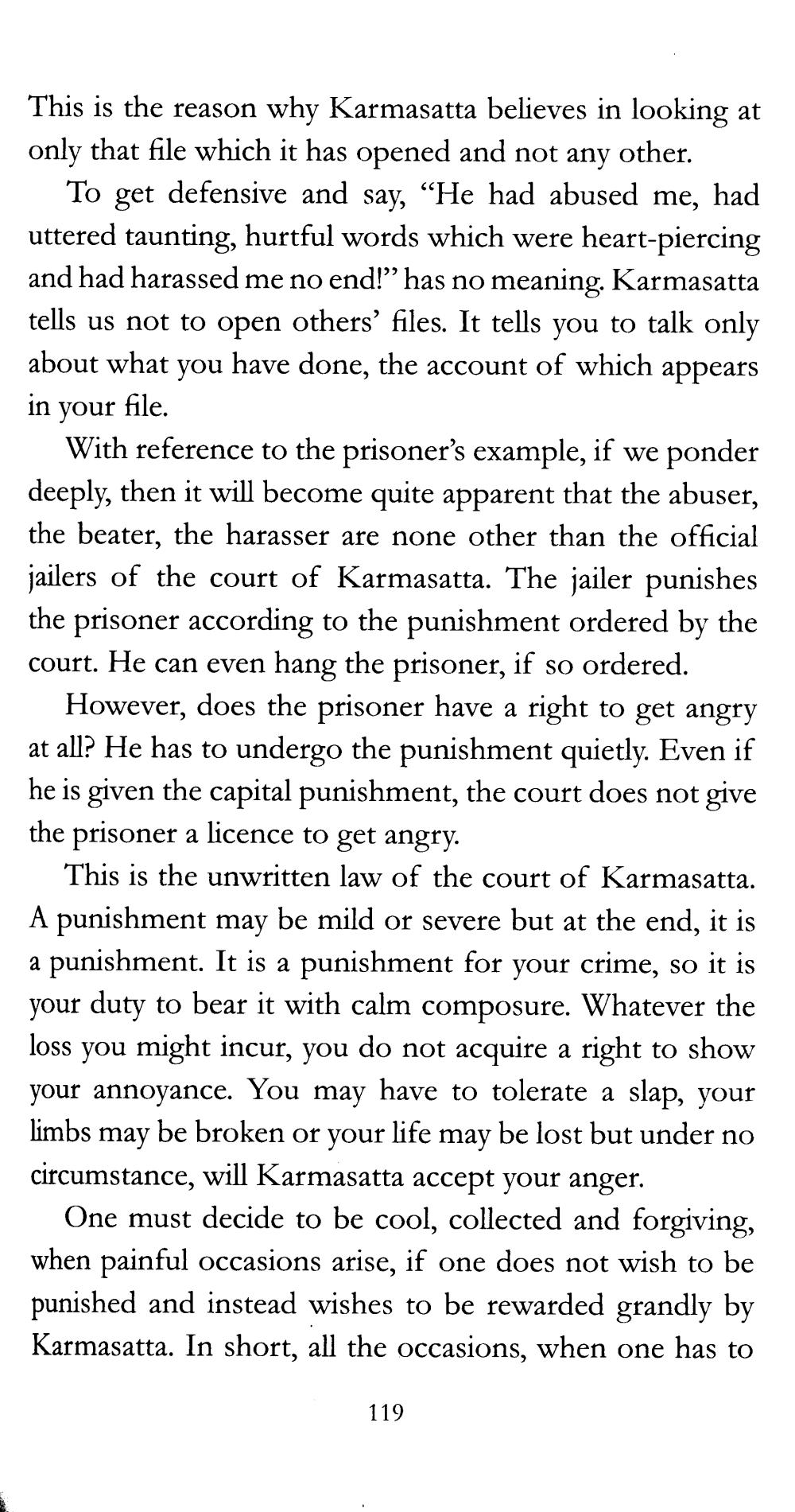________________
This is the reason why Karmasatta believes in looking at only that file which it has opened and not any other.
To get defensive and say, "He had abused me, had uttered taunting, hurtful words which were heart-piercing and had harassed me no end!" has no meaning. Karmasatta tells us not to open others' files. It tells you to talk only about what you have done, the account of which appears your file.
in
With reference to the prisoner's example, if we ponder deeply, then it will become quite apparent that the abuser, the beater, the harasser are none other than the official jailers of the court of Karmasatta. The jailer punishes the prisoner according to the punishment ordered by the court. He can even hang the prisoner, if so ordered.
However, does the prisoner have a right to get angry at all? He has to undergo the punishment quietly. Even if he is given the capital punishment, the court does not give the prisoner a licence to get angry.
This is the unwritten law of the court of Karmasatta. A punishment may be mild or severe but at the end, it is a punishment. It is a punishment for your crime, so it is your duty to bear it with calm composure. Whatever the loss you might incur, you do not acquire a right to show your annoyance. You may have to tolerate a slap, your limbs be broken or your may life may be lost but under no circumstance, will Karmasatta accept your anger.
One must decide to be cool, collected and forgiving, when painful occasions arise, if one does not wish to be punished and instead wishes to be rewarded grandly by Karmasatta. In short, all the occasions, when one has to
119




